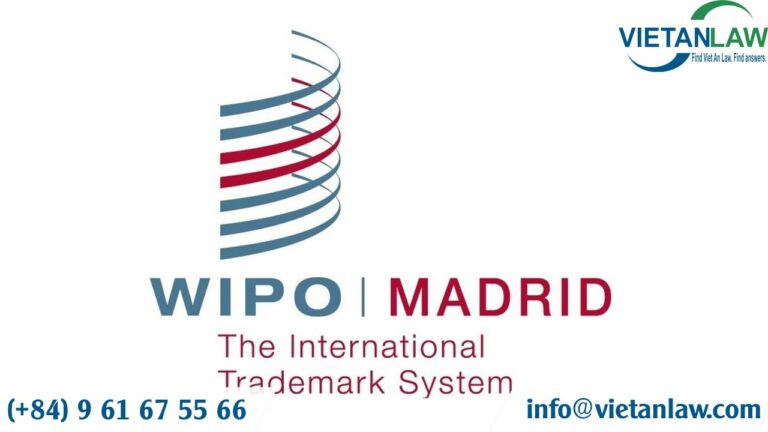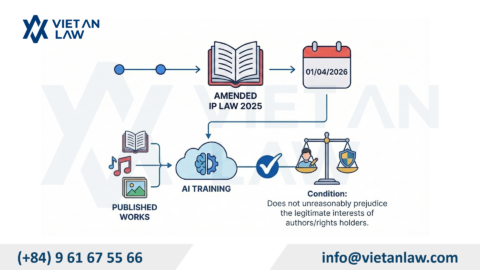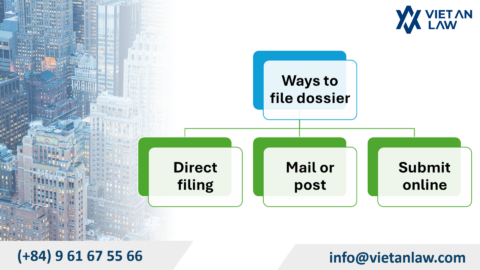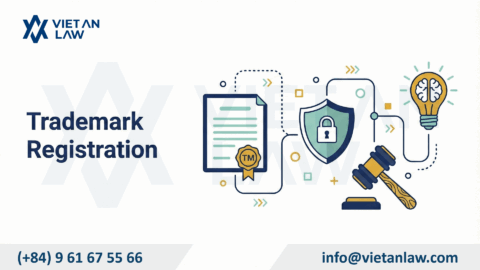The Madrid Agreement on the international registration of trademarks was signed in the capital Madrid – Spain on April 14, 1891. The content of the Agreement is to establish a procedure for international registration of trademarks to simplify trademark registration and reduce costs for applicants when registering trademarks abroad. So what does a trademark registration dossier under the Madrid agreement include? In the article below, Viet An Law will provide you with information on trademark registration application under the Madrid Agreement.

Trademark registration is understood as the recognition and recognition by a competent authority of an individual or organization’s trademark for specific goods and services according to the provisions of law. Trademark registration can be carried out and is valid in each country, region, or at the international office according to national/ regional law, or international treaties.
According to the provisions of international treaties as well as the laws of countries/territories, ownership of a trademark is established based on a trademark registration certificate issued by a competent authority or based on actual commercial use. In most countries/territories, including Vietnam, establishing trademark rights based on a trademark registration certificate issued by a competent authority is the main way for the owner to achieve rights to your trademark.
To be granted a Trademark Registration Certificate, individuals and organizations must submit a trademark registration application to a competent authority following the law. Depending on the law of the country/territory, the registration application Trademarks often include a form registration declaration; Trademark samples and documents showing the subject matter for registration; Power of attorney (if any); Documents proving registration rights (if any); Documents proving priority rights (if any); registration fees and charges.
International registration of trademarks is an international convention that records the agreement of member countries on the protection of trademarks of goods and services in all member countries.
Under the Madrid system, citizens and legal entities of each contracting state enjoy absolute trademark protection in all other member states. However, to be able to enjoy protection under the Agreement, the applicant must be a national of one of the Contracting States or must be resident or have an active commercial or industrial establishment operating actually in member countries. Signing a trademark in a member country of the Agreement, the trademark owner will only have to file the application in one language (French) and pay the fee to the International Bureau, instead of filing the application in each member country in different languages and must pay multiple fees. In this way, trademarks of goods and services will be protected in all member countries without having to apply for registration in those countries.
The international registration of marks shall be published by the International Bureau and communicated to the States Parties to the Agreement. The term of protection is 20 years (can be extended every 20 years). Within 1 year, member countries of the Agreement have the right to refuse protection for trademarks registered at the International Bureau. This refusal must be expressed after posting by a clear statement from a competent state agency. If within 1 year there is no notification of refusal of protection, the international registration at the Bureau is automatically considered valid by the member state.
International trademark registration under the Madrid system is a form of international registration application applicable to countries that are members of the Madrid system. The application for trademark registration will be conducted at the International Bureau of the World Intellectual Property Organization (WIPO) and the application will designate the countries that are members of the Madrid system.
Private enterprises have the right to international registration of trademarks based on basic trademark registration in Vietnam in the following cases:
Private enterprises that want to register an international trademark in this form should conduct a search in advance for the possibility of trademark registration to avoid the risk of the international trademark registration application being rejected due to confusingly similar to registration applications or protected trademarks in each country.
After meeting the above conditions and ensuring that their trademark is not confusingly similar to the registration application or protected trademark in each country, a private enterprise can apply for international trademark registration under the Madrid system at the International Bureau of the World Intellectual Property Organization (WIPO) through the National Office of Intellectual Property.
When individuals or organizations want to register an international trademark under the Madrid Agreement, they must submit an international trademark registration application under the Madrid system at the International Office of the World Intellectual Property Organization (WIPO) through the Department of Intellectual Property. Records include:
The National Office of Intellectual Property transfers the trademark international registration application to the International Office within 30 days from the date of receipt of all valid application documents according to regulations.
Above is the trademark registration application under the Madrid Agreement. If you have related questions or need to register a trademark, please contact Viet An Law for the best support!




